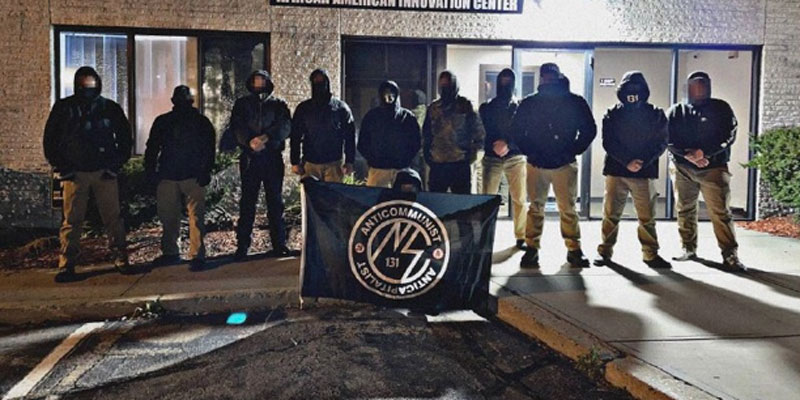Not long ago, technology was beginning to allow the blind to see. Beware the need for maintenance and software support:
These three patients, and more than 350 other blind people around the world with Second Sight’s implants in their eyes, find themselves in a world in which the technology that transformed their lives is just another obsolete gadget. One technical hiccup, one broken wire, and they lose their artificial vision, possibly forever. To add injury to insult: A defunct Argus system in the eye could cause medical complications or interfere with procedures such as MRI scans, and it could be painful or expensive to remove.
On its face, this is more a market failure than a technological one. (What is preventing the market from making such miracles sustainable?) Either way, however, it does remind us not to be too readily trusting in technology (whether implants or, say, vaccines) that must be maintained in an ongoing way. It also reminds us how easily the ground can fall away beneath us. Disruptions from experiments in big government, for example, become absolutely profound when one needs the structures of society even in order to see.
[Open full post]Author and former Providence Journal opinion page editor Ed Achorn has been tweeting about the Canadian government’s move on banking, and the topic is one that ought to be of much more concern to all of us. Note this tweet, from Peter Sweden, which Achorn passes along with the comment, “If true, this is terrifying”:
In Canada they froze the bank accounts of a single mother for the crime of donating $50 to the truckers BEFORE they declared the protests illegal.
Retroactive financial sanctions for opponents of the government.
Sounds like North Korea…
Ed’s qualifier is well placed; there’s often much more to these anecdotes than the Twitter-sized summary reveals. On the other hand, people respond to the message they receive, not a fully nuanced analysis of the facts.
This relates to another of Achorn’s recent tweets, in which he emphasizes a comment from Jordan Peterson that a source in the military advised Peterson to remove all his money from Canadian banks because “the situation is far worse then he was informed.” The more consequential point from the Peterson clip, however, may be this one:
Here’s what our prime minister did last week: He permanently destroyed 20% of the population’s faith in the entire Canadian banking system and stained the Canadian banking system’s international reputation, I would say, for decades.
Don’t forget that just a few months ago the Biden administration was seeking to give the IRS power to monitor Americans’ bank accounts on an ongoing basis. One needn’t be much of a conspiracy theorist to connect this with Trudeau’s tyrannical actions, but even if American Democrats have the purest of intentions, such policies are insane.
Western civilization has been comfortable for so long that too many people have forgotten how much of what we’ve built depends entirely on trust. Concepts like power, exploitation, and oppression are important and relevant, but they are all secondary limitations on the more-fundamental ideal of trust.
Progressives in government (a label by which I mean to include Trudeau’s government as well as Biden’s) misunderstand society and reality, and so they base their policies on the assumption that people will keep doing what they do because they have no choice. They think that wealth and productivity are things some people arbitrarily take from other people, so they miss the essential point that people are the economy.
Consequently, they think, “so what if 20% of the population disengages from the system. That means more for the rest of us.” That’s not how any of this works.
Featured image by Konstantin Evdokimov on Unsplash.
[Open full post]The video that the Rhode Island 131 group posted of its attack, protest, walk-by-shouting, whatever, on Monday shows how pathetic the whole thing was.
The video does add the implied possibility that there was some shoving involved, although it may have been two-sided.
The idea that this has commanded the attention of all of Rhode Island’s governing officials for a day would be inexplicable if we hadn’t already seen similar reactions for far less (like a handful of fliers on the East Side). It’s inexplicable, that is, except as propaganda, which has exposed the real threat — namely, that governing officials are on the hunt for excuses to curtail our freedoms while distracting from their own failures.
[Open full post]Convenient, isn’t it, that a small group of people making noise and waving a Nazi flag can turn an inconsequential Communist reading by an unknown socialist organization into the hot story of the day in Rhode Island, providing massive advertisement for their little left-wing library?
Attempting to make the event seem significant, the Boston Globe tacked this lead on Carlos Muñoz’s related story: “The publication of the Karl Marx and Friedrich Engels manifesto is celebrated each year by thousands around the world as ‘Red Books Day.'” Wow! Thousands around the world! What’s the population of the planet, again?
For some sense of the size of the socialists’ event (about which journalists seem suspiciously incurious), consider some of the numbers. There were “15-20 individuals… allegedly from a neo-Nazi group.” And one of the socialists tweeted that his group was “outnumbered 5:1.” That would put the number of people inside the library at three or four, so, basically a small group of friends reading to each other.
As a default, we should generally assume that incidents involving neo-Nazis in modern day Providence are hoaxes or false flags, but in this case, the numbers make the default less sure. If the protest were fake, one would expect organizers to have assigned more people to actually attend the event, rather than falsely protesting it. More likely, one small fringe group heard about the event of another small fringe group, and they joined forces for a bit of early-twentieth-century cosplay.
Where the rest of us should be concerned is with the muddying of waters as more-powerful people leverage these incidents for propaganda. Note this statement from another activist group looking to get in on the PR boon:
The Black Lives Matter RI PAC issued a statement Tuesday about the incident: “There is no greater threat to Rhode Island than nazism and white supremacy. Yesterday evening, an organized group of Neo-Nazis that have established themselves throughout Rhode Island terrorized Red Ink Community Library in Providence Ward 3.”
The idea that the Nazi threat is significant in Rhode Island is sufficiently laughable to ignore, but the claim about “white supremacy” is where the mainstream media could actually provide a service by insisting on consistency. “Anti-racist” literature is peppered with assertions that one finds “white supremacy” in all sorts of American institutions, most especially the institution of capitalism. Yet, one of this group’s other cosplay flags, as shown in the featured image of this post, via John DePetro, joins anticommunism with anticapitalism.
Perhaps one can weave a tale in which capitalism is implicit white supremacy while the rare people who actually identify as white supremacists oppose capitalism, but explanation is required, to say the least.
However, one suspects that explanation is not forthcoming. Fringe groups aren’t the only ones playing games, here, and it’s the other ones we have to keep our eye on.
[Open full post]Jordan Peterson has shared a note from one of the organizers of the Ottawa protests:
From BJ Dichter, one of the organizers of the Ottawa protest. If you don’t think this could happen to you or someone you love you’re a fool. He’s been made a nonperson. Without being charged or tried. Is this what we’re now doing to people who differ in political opinion?
All of my bank accounts, person and corporate and all my credit cards have been frozen. Has happened to many others. It feels like being banished from the midlevel [Medieval?] village left to die.
It’s chilling to see the number of comments to Peterson’s post that completely ignore the significance of due process. In the view of some, the government warned him to stop, and this is simply the consequence for his actions.
There are dark times coming if we don’t turn this around soon in the West. In the meantime, I foresee cash enjoying a surge in interest.
[Open full post]As much of the local, state, and national media goes woke, established publications like the Providence Journal have seemed more even-handed in contrast. An article by Katherine Gregg about a Rhode Island psychiatrist who dissents from the demanded view on COVID blows that impression up. Some of the paragraphs that make me wonder whether the Projo has laid off all its editors.
For instance, what is the relevance of the date to this particular story?
On a broadcast, aired on the anniversary of the January 6 siege of the nation’s Capitol, she lamented the COVID “hysteria” being perpetrated by “many different media outlets about the virus.”
What evidence does Gregg have that the doctor was speaking based on “talking points” rather than her informed opinion?
Asked if McCance-Katz had been given the go-ahead to argue GOP talking points in venues outside Rhode Island, a spokesman for the state’s Department of Behavioral Healthcare, Developmental Disabilities and Hospitals said…
Gregg throws a bunch of stuff in the pot to make Dr. McCance-Katz (no relation) seem like a partisan Republican and then blame her for long-running troubles at the state-run Eleanor Slater Hospital, but it’s a farce to enforce an partisan, ideological line and distract from true responsibility.
[Open full post]According to a comprehensive national survey by Genworth Financial, long-term care costs were up in most out-of-the-home settings and are uniformly well above national levels:
| RI Cost | U.S. Cost | RI Premium | RI Rank | RI 2020-2021 Increase | U.S. 2020-2021 Increase | |
|---|---|---|---|---|---|---|
| Homemaker Services | $68,640 | $59,488 | 15% | 12th | 3% | 11% |
| Home Health Aide | $71,500 | $61,776 | 16% | 7th | 1% | 13% |
| Adult Day Health Care | $21,580 | $20,280 | 6% | 23rd | 11% | 5% |
| Assisted Living Facilities | $81,915 | $54,000 | 52% | 3rd | 38% | 5% |
| Nursing Home: Semi-Private Room | $113,150 | $94,900 | 19% | 19th | 9% | 2% |
| Nursing Home: Private Room | $120,450 | $108,405 | 11% | 20th | -2% | 2% |
Keep in mind that these were the increases and costs before the state began enforcing legislation making Rhode Island’s minimum staffing mandates for nursing homes perhaps the most extreme on the planet. Those six-figure costs in Rhode Island at the bottom of the table are sure to explode in this year’s version of the survey.
Featured image by Matthew Bennett on Unsplash.
[Open full post]On WNRI 1380 AM/95.1 FM, John DePetro and Justin Katz discuss:
- Attorney General Peter Neronha stands out (against RI’s low threshold for leadership).
- Governor Dan McKee inspires no confidence appointing advisors and leading into his big announcement.
- Voting laws offer hints about intra-Democrat differences in corruption.
- COVID is going away, but some won’t admit it.
Featured image by Justin Katz.
[Open full post]Whether or not one agrees with Attorney General Peter Neronha’s decision to block a major merger of Rhode Island hospital companies, the fact that it wasn’t really a typical Rhode Island decision-making process cannot be denied. From that fact we can learn an important lesson.
Personal integrity probably played a role, of course, but one reason he was able to buck expectations was that Neronha was tasked with answering a specific question based on a clear set of standards (i.e., the law). That is how we should strive to structure all administrative and judicial (as opposed to legislative) decisions in government. Unfortunately, we’ve become too accustomed to elected officials and judges simply imposing their best judgment (I’m being charitable) regardless of what law or regulation might say.
People who do that have to be removed from office. Of course, political insiders will always prefer that decisions be made behind closed doors for political reasons, with justification pieced together after the fact as a disguise for the corruption.
[Open full post]The following sentence, concerning the attorney general’s scuttling of a hospital merger deal, from Ted Nesi’s weekend roundup column brought to mind a different industry:
Yet in the end, their plans were derailed by a concern raised on day one: how could a hospital group with roughly 80% market share be stopped from abusing its dominant position?
Why is abuse of a dominant position a matter of concern in healthcare but not in education? Not surprisingly, Erika Sanzi had the same thought:
Listening to @AGNeronha convincingly explain to @TedNesi and @TimWhiteRI how handing 80% of health care market share over to one entity would decrease quality and increase costs.
Exactly the same with our current K12 system but somehow that’s just fine?
Left-wing podcaster Bill Bartholomew, however, doesn’t get it:
not sure I follow the logic here from blogger/columnist Erika Sanzi, who compares fundamentals of @AGNeronha decision on proposed hospital merger to the status quo of public k12 education in RI. What am I missing?
And outgoing teachers union director Bob Walsh pretends not to get it:
I guess if we ever try to merge the current 66 separate local education agencies in Rhode Island, and the numerous private and parochial schools, into one entity we might face an objection. Or maybe it’s just a totally invalid, politically motivated, dark-money financed statement
Look, this isn’t complicated. Even a merged company has divisions with distributed decision-making. Monopolies are bad, but even so, a single company running every hospital in the state wouldn’t require every decision to go up to the central office. Indeed, necessity would demand that most day-to-day decisions would be made by each hospital in much the same manner as independent organizations. The differences would be in things like uniform employment arrangements, consistent rules for particular procedures or treatments, centralized bill collection, redistribution of resources across the system as managers deem necessary, and so on.
The problem with monopolies is that anybody who doesn’t like any of those one-for-all rules, whether as an employee, a customer, or a vendor/supplier, has no options. That person is trapped. This is particularly problematic in healthcare, because many of the services we buy are not really optional, and (although holistic medicine believers may disagree) self-treatment isn’t always feasible.
This is very much the situation we have in education. Even were they inclined to be neglectful, parents are required by law to see that their children are educated. The “choice” between districts requires the massive disruption of moving. And the combined force of state mandates and statewide labor unions operating across districts imposes some substantial uniform policies throughout public schooling.
As for the control of the market, when I built an economic model to project the effects of school choice policy using 2012 data, I found that district schools controlled 85% of the enrollment market, with private school and homeschooling taking about 12% and charter schools and other independent public schools claiming the remaining 3%.
Remember, also, that left-wingers like Bartholomew and Walsh tend to want more centralization of policy and resource-redistribution across the system than we already have! They also tend to want to limit access to the alternative 15%, while also extending more centralized policies to them.
So, back to Sanzi’s question: If monopoly on this scale isn’t acceptable for healthcare, why is it for education?
Featured image by MChe Lee on Unsplash.
[Open full post]






